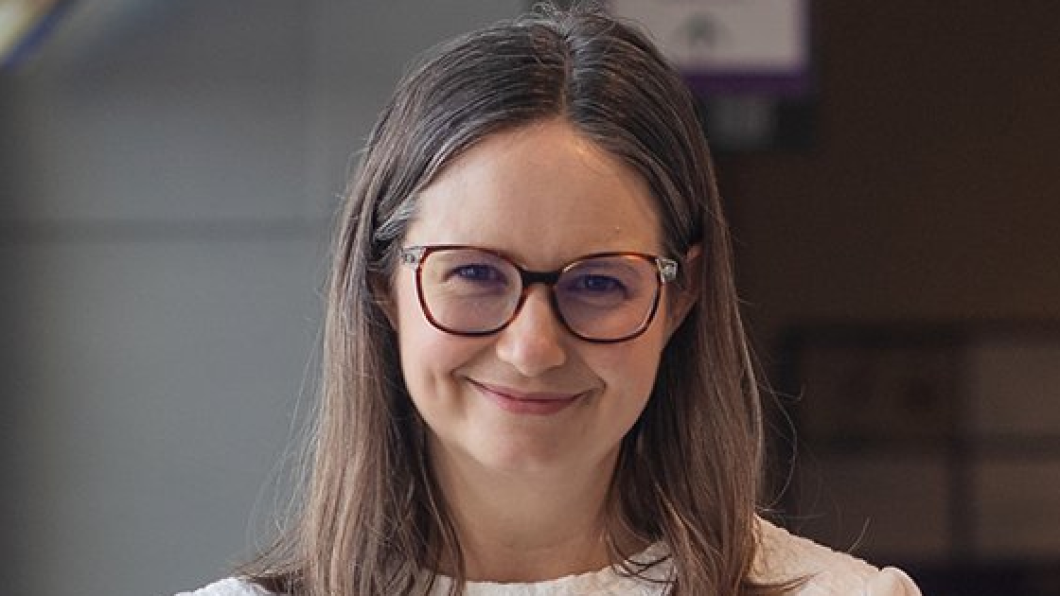
How a donor’s gift is leading to reduced wait times for kids with autism
Autism Spectrum Disorder (ASD) is the fastest-growing developmental disability in the world, affecting 40,000 Ontario children and half of Holland Bloorview’s outpatient clients. And yet it remains poorly understood and difficult to diagnose, due to the many different ways it presents in different children. There is a very long waiting list for autism diagnosis in Ontario, with thousands of kids experiencing the anxiety, sleep problems, social difficulties and emotion management issues associated with ASD as they wait for assessment and care.
Dr. Melanie Penner, a developmental pediatrician and clinician scientist at Holland Bloorview, is working to change that, thanks to a $250,000 gift from longtime donor Mary Davie that is enabling ground-breaking research in autism diagnosis and service delivery. The goal is to expand the healthcare system’s diagnostic capacity, leading to shorter wait times and earlier access to care for kids with autism.
Dr. Penner led a first-of-its-kind study that evaluated the ability of general pediatricians to diagnose ASD in children. The study, which was published in a high-profile journal and led to international attention, found that when a pediatrician thought a child had autism, they were right nearly 90 per cent of the time, but only 60 per cent of the time when they thought a child didn’t have autism. The results indicated that, with training to boost their skills and confidence, community-based pediatricians could play a role in increasing diagnostic capacity for more straightforward cases, allowing specialists to provide expert assessments for more complex cases and reducing wait times for all.
“Autism is a very complicated condition,” says Dr. Penner. “Sometimes even when they knew what the diagnosis was, pediatricians would still refer the child to see a specialist like me, meaning that the family had to wait months more to get a diagnosis that somebody already knew. That’s the situation we’re trying to change, by tackling all the different barriers that could get in the way of someone feeling comfortable doing that diagnosis themselves.”
The team is building pediatricians’ confidence through the ECHO Ontario Autism program, which provides training and connections to resources as well as diagnostic consultations with a multidisciplinary team that includes input from developmental pediatricians, social workers and occupational therapists as well as people living with autism and their families. “That’s extraordinarily powerful,” Dr. Penner says. “Some of our most amazing moments have nothing to do with an expert on the team; they’re from the folks with lived experience who can say, ‘This is how this felt when I was in a similar situation.’”
The program is also popular with physicians. Says one pediatrician: "I feel very passionate about this. With this course, I’m feeling much more confident in providing accurate diagnoses. Given the great need, and waitlists in my area of more than two years, I am very happy to be able to do this and get kids the support they need sooner."
As both the incidence of autism and the demand for diagnostic assessments are on the rise, Dr. Penner says it’s imperative to expand the number of healthcare providers who can provide them. “Our system pressures are such that there’s no way we can stick with the idea that only specialists can diagnose autism,” she says. “I hope we can reduce wait times, and get some kids diagnosed earlier so they can get into therapy programs while their brains are still developing, and their learning patterns are just coming into play. And hopefully expanding our diagnostic capacity will allow people like me to see the more complicated, nuanced cases, because not every kid can be assessed by a community physician, and those complex cases are increasingly what our expertise is going to be needed for.”
With the announcement of an additional gift of $450,000 from Mary Davie to support her work, Dr. Penner is excited to plan the next steps for the program, which include expanding to more communities, evaluating its effectiveness and including pediatricians in rural areas in Canada and beyond.
“We’re hoping to generate evidence that has impact outside of Canada,” says Dr. Penner, who is endlessly grateful for Mary Davie’s generosity in funding this vital program. “My program of research has really taken off due to this funding. I was able to have more time to do research, and everything has flowed from there, from the study to securing a grant to expand the ECHO program and implement these strategies across Canada, which is really exciting.”
“I am always impressed by Dr. Penner’s dedication, enthusiasm and accomplishments,” says Ms. Davie. “The ECHO system helps so many families with an earlier diagnosis and thus much-needed support for kids with autism. I look forward to hearing about Dr. Penner’s future plans and am delighted to support her ongoing research.”